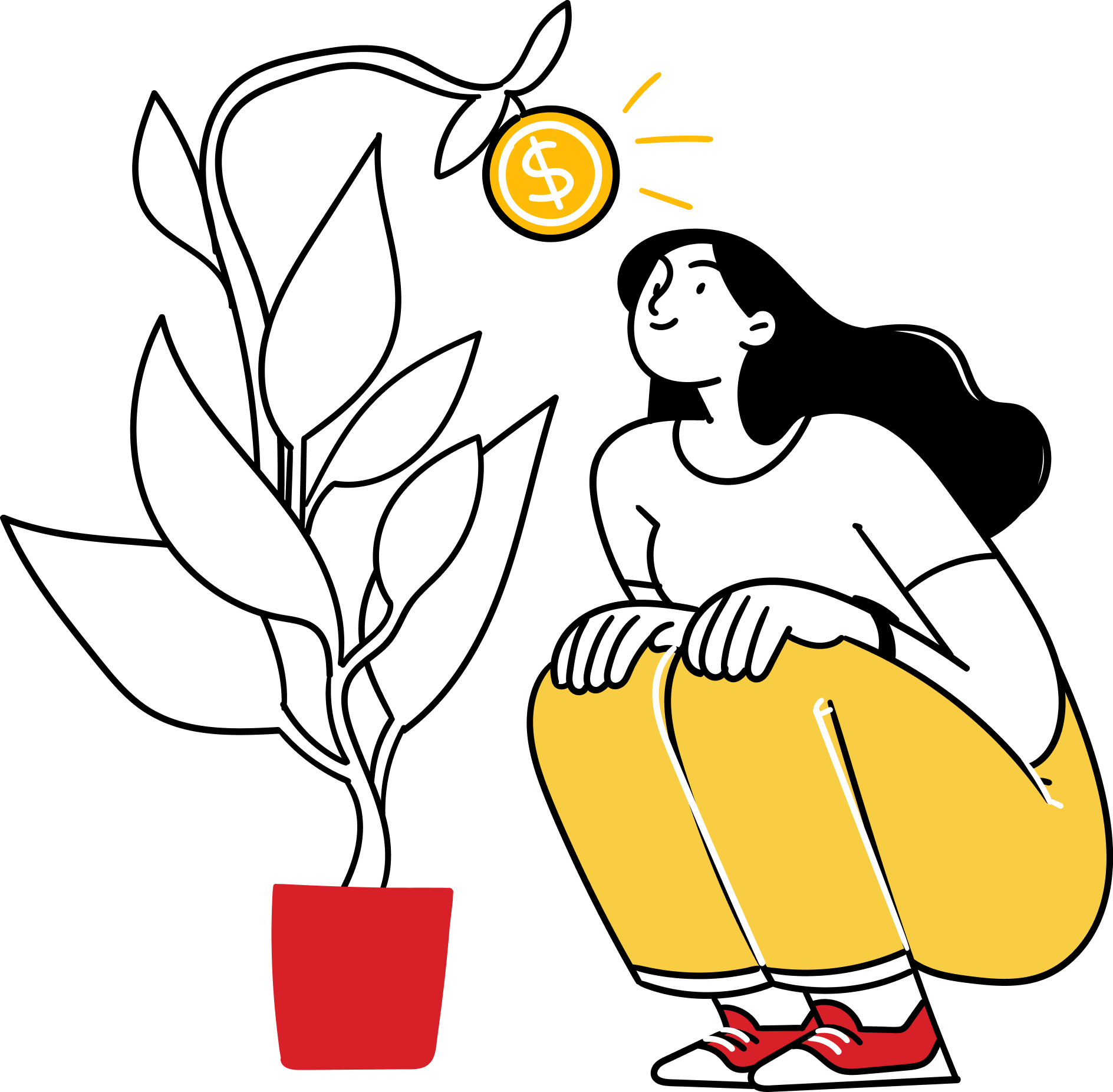We believe that financial education is an essential tool that can transform lives.

Understanding the fundamentals of money, saving, investing and credit management can be the difference between living forever worried about debt and building a solid financial future. Financial education is an investment in yourself and your well-being.
Taking control of your personal finances is an essential step in achieving your goals and securing a stable financial future. It's not just about making more money, it's about understanding how it works, how to spend it wisely and how to make it work for you. Here's a brief tour to help you get off on the right foot.

Before making changes, you need to know what your current financial situation is. Make a Balance Sheet: List all your assets (what you own) and liabilities (what you owe). Evaluate your Income and Expenses: Keep a record of every penny coming in and going out for at least a month. This will give you a clear idea of where your money is going.
Calculate your personal wealth so you can assess your current net worth and plan your finances for the future. Net worth is the total amount of value (in terms of money) you own. To calculate your net worth, add up all of your assets (things of value that you own) and subtract your liabilities (things with negative value, such as debts).
Net Current Wealth:
Wealth Projection (Select years):
Years
Having clear goals will help you stay motivated and focused. Short Term Objectives: Example: Pay off a small debt, save for a vacation. Medium Term Objectives: Example: Buy a car, have an emergency fund for 6 months. Long Term Objectives: Example: Buy a house, retire.
The budget is your financial roadmap, guiding you toward your goals and avoiding unnecessary expenses. Allocate Items: Decide how much you will spend in categories such as housing, food, entertainment and savings. Monitor and Adjust: Review your budget regularly and adjust it as needed.
Calculate your personal wealth so you can assess your current net worth and plan your finances for the future. Net worth is the total amount of value (in terms of money) you own. To calculate your net worth, add up all of your assets (things of value that you own) and subtract your liabilities (things with negative value, such as debts).
Total Monthly Income
$ 0.00
Total Monthly Expenses
$ 0.00
Total Monthly Savings
$ 0.00
Below/ Above Budget
$ 0.00
Having clear goals will help you stay motivated and focused. Start Saving Now: Even if it's a small amount, the habit of saving is vital. Learn about Investments: As your savings fund grows, consider investing to make your money grow faster.
Debt, especially high-interest debt, can be a drag. But with focus and discipline, you can reduce and eventually eliminate them. Prioritize your debts:Pay those with higher interest rates first. Avoid Future Debt: Use credit wisely and avoid going into debt for impulse purchases.
Year 2024 Balance Sheet:
$100,000
Initial Quantity
$100,000
Total Contributions
$100,000
Total Growth
The financial world is vast and ever-changing. Invest time in learning about finance, either through books, courses or consulting.
Taking control of your personal finances is a journey, not a destination. With each step you take, you'll be closer to financial freedom and peace of mind. Remember, the road to financial success begins with a single step: the commitment to get started. Do it today!
You should always know where your money is and how it is working to help you generate more wealth. Be intentional with your decisions!
